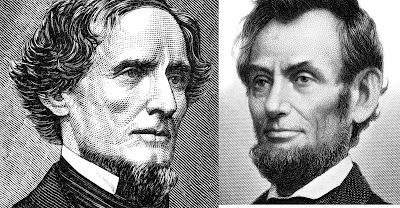Abraham Lincoln and Jefferson Davis were interesting characters. Exactly the type of characters a novelist needs to carry a story.
In writing Maelstrom, I had a scene where Lincoln addresses
Congress after a recess. (As customary at the time, his address was read by a
clerk.) Not much has happened during the recess. Eleven states had seceded from
the Union, Fort Sumter had been bombarded and surrendered, a piece of Virginia
had been occupied, and Lincoln had exceeded his executive powers to spend
unauthorized money, build an army, and suspend habeas corpus among other
things.
He desperately needed Congress to backfill behind him.
This was a crucial address. Important for Lincoln and the
country. The address was not one of his well-known speeches, but I was struck
by the clarity and simplicity of the explanation of why he took these actions.
Lincoln said it was a struggle for maintaining a form of
government “whose leading object is to elevate the condition of men—to lift
artificial weights from all shoulders—to clear the paths of laudable pursuit
for all—to afford all an unfettered start, and a fair chance in the race of
life.”
I cannot think of a loftier goal for government.



